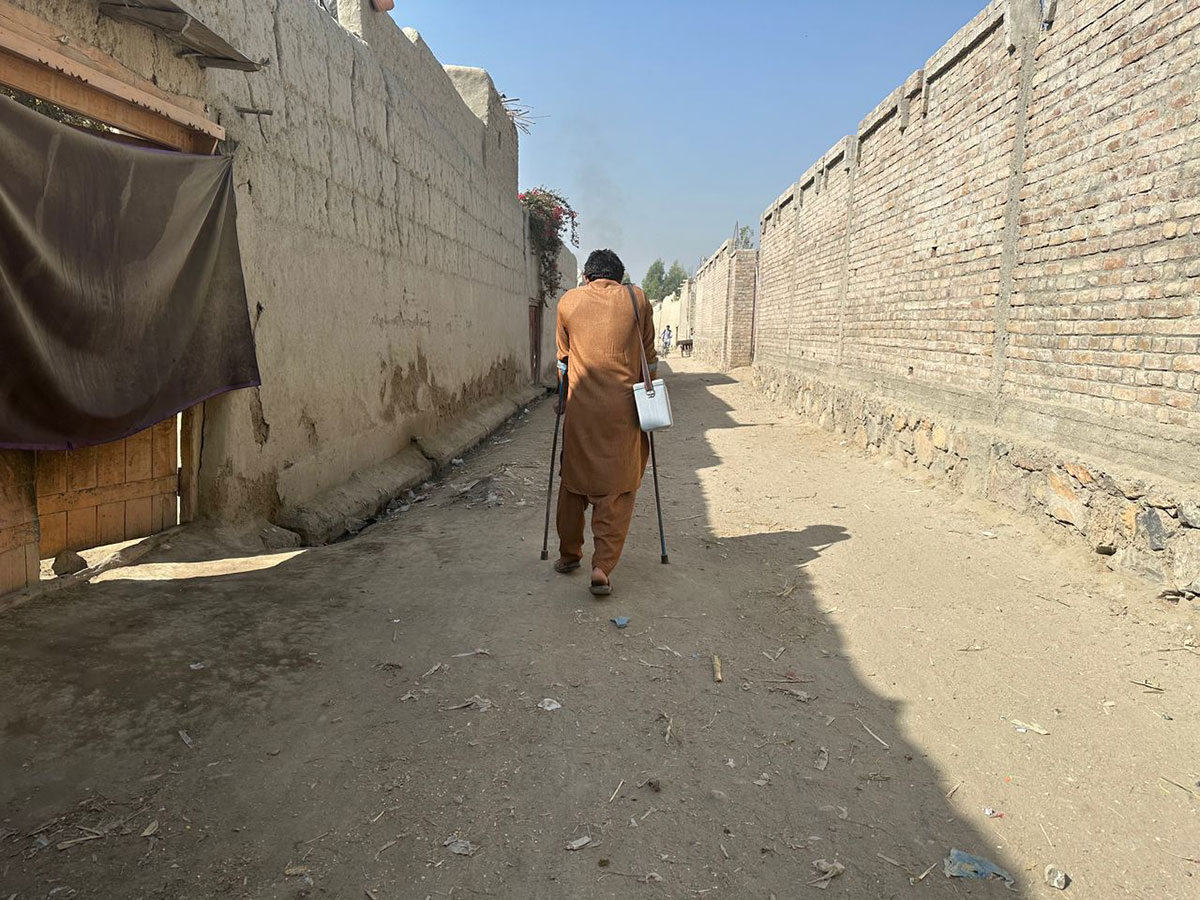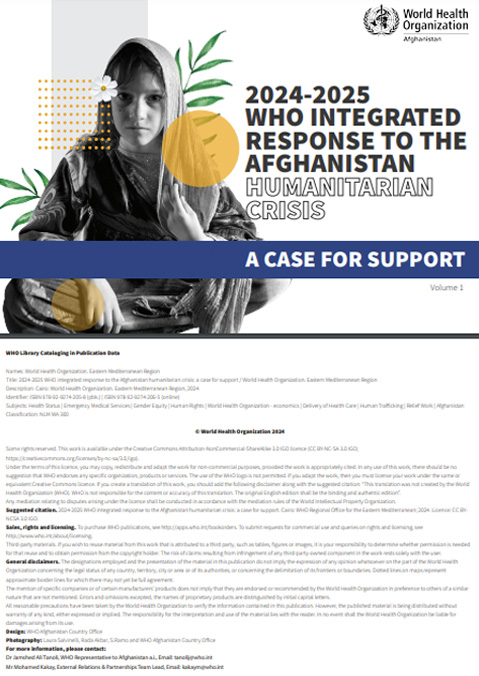 5 March 2024 – My name is Farid, and I am 35 years old. I live in the Bati Kot district of Nangarhar province, Afghanistan. I contracted polio when I was 3 years old. The symptoms started with a fever, then a weakness in my left leg and in my left hand. While strength eventually returned to my hand, my leg remained weak. My parents took me to the doctor. After medical examinations, the doctors said that I had polio and there is no cure. When my parents heard that I could not be treated, they took me home.
5 March 2024 – My name is Farid, and I am 35 years old. I live in the Bati Kot district of Nangarhar province, Afghanistan. I contracted polio when I was 3 years old. The symptoms started with a fever, then a weakness in my left leg and in my left hand. While strength eventually returned to my hand, my leg remained weak. My parents took me to the doctor. After medical examinations, the doctors said that I had polio and there is no cure. When my parents heard that I could not be treated, they took me home.
Growing up with a paralysed leg created many challenges for me. I couldn’t play with other children, but I never lost hope. I fought to live my life like other children in my community. I started attending school, then completed my studies in computer science. My parents were always supportive, especially in my studies and building my career.
In my personal life, I also encountered challenges. When I wanted to get married, I faced rejection 4 times from different families. They did not want to marry their daughters to me because they said I have a disability and cannot work. I’m happy my wife’s family accepted me, and I now have 4 beautiful children. I make sure to vaccinate my children at every opportunity. I don’t want them to be affected by poliovirus like I was. I also encourage my neighbours to vaccinate their children whenever they have the opportunity.
My daily life is challenging, and I face many obstacles. There are certain tasks and jobs that my relatives, friends and neighbours can do but I cannot. I have some land in my village where I grow things like wheat and corn to help feed my family. Because my paralysed leg prevents me from cultivating my land, I pay someone to do this for me. This often brings me disappointment.
Because I know firsthand the danger of poliovirus and how it can affect the lives of children and their families, I joined the polio eradication programme in 2017. I work as a supervisor, and my job is to train vaccination teams under my supervision. I prepare them for vaccination campaigns, make sure they receive enough vaccines and equipment, monitor their work, and report their achievements at the end of each day during the campaign. On campaign days, I go out and make sure all is working well for the teams, that they have everything they need and that all children in my area receive the polio vaccine.
For those who do not want to vaccinate their children, I go to their houses and tell them that the only way to protect their children from poliovirus is by vaccinating them with 2 drops of polio vaccine. I also tell them, “If you don’t vaccinate your children, they could be paralysed like me”. I share my personal story with them and challenges that I face in daily life. In our village, we used to have many vaccine refusals, but now they are few because I take the time to talk with parents and carers and explain my situation.
Even when we are not having vaccination campaigns, I talk with people and raise awareness about poliovirus and the importance of the polio vaccine. We must vaccinate our children against polio at every opportunity. Polio is a terrible, crippling disease and we cannot let any child be paralysed.












